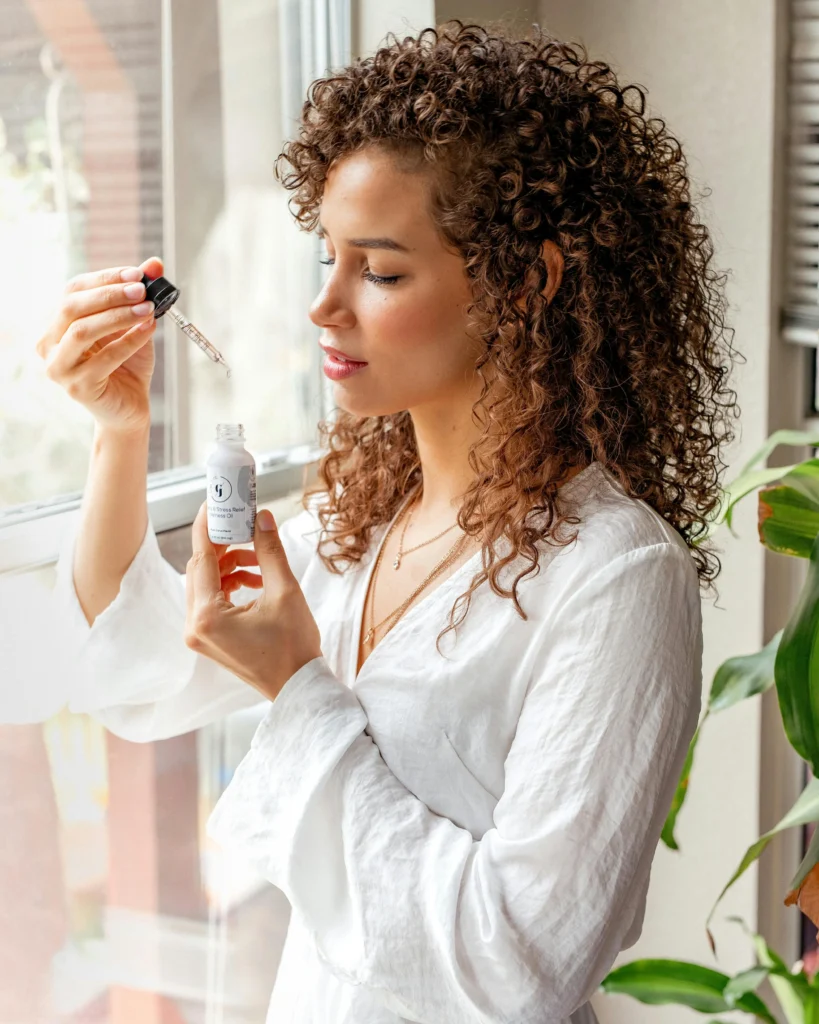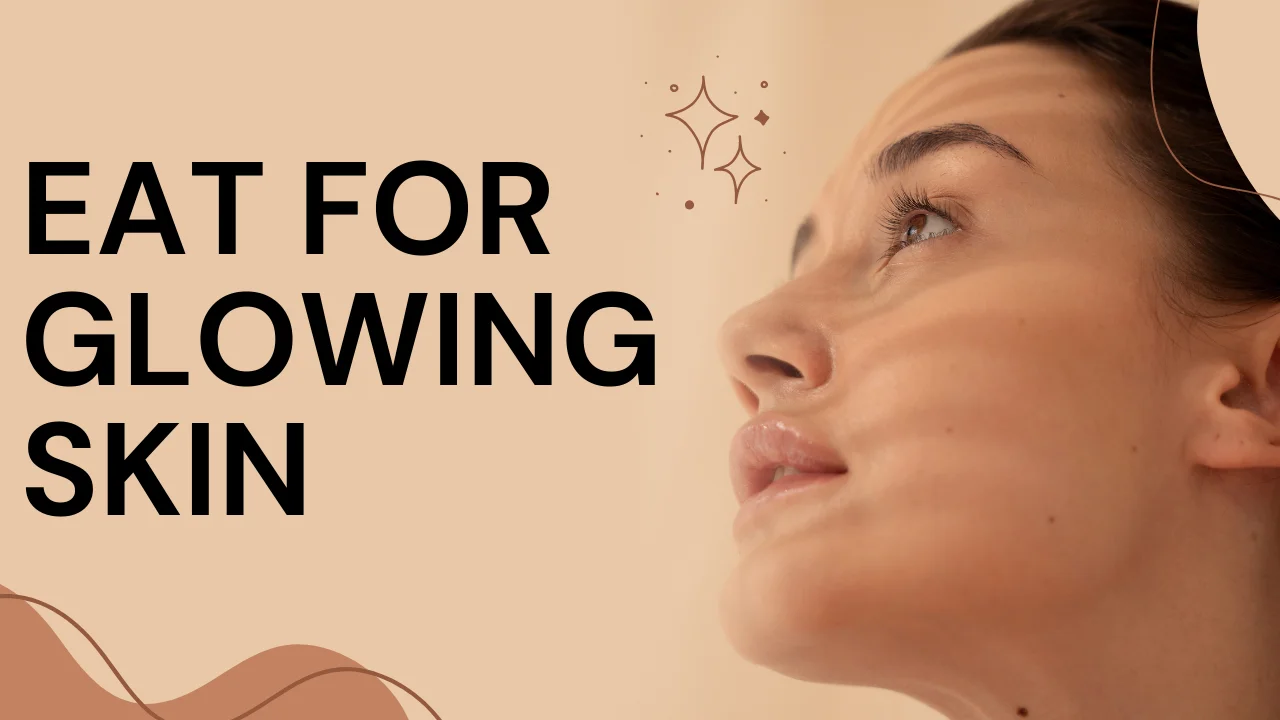Introduction: Why Diet Matters for Your Skin
Your skin is more than just a surface—it’s the largest organ in your body, and it reflects your internal health. While skincare products can help on the outside, true, lasting radiance begins from within. What you eat directly impacts your skin’s texture, tone, hydration, and even how fast it ages.
Every bite of food you take either helps nourish your skin or contributes to inflammation, breakouts, and dullness. Nutrients like vitamins, antioxidants, and healthy fats are essential for skin repair, protection, and renewal. On the other hand, a diet high in sugar, refined carbs, and unhealthy fats can accelerate aging, increase oil production, and trigger acne.
Think of your skin as a mirror to your diet: glowing skin often starts with a healthy gut and well-balanced meals. By feeding your body the right nutrients, you’re giving your skin the fuel it needs to glow, heal, and stay youthful.

Antioxidants: The Secret to Youthful, Radiant Skin
Antioxidants are your skin’s best friend when it comes to fighting signs of aging and keeping that natural glow. These powerful compounds help protect your skin from free radicals—unstable molecules caused by pollution, UV rays, stress, and even poor diet. Free radicals damage skin cells, speed up aging, and contribute to dullness, wrinkles, and uneven tone.
Antioxidants neutralize these harmful molecules, helping your skin stay healthy, smooth, and bright. They also support collagen production, reduce inflammation, and help repair damaged skin tissue.
Best Antioxidant-Rich Foods for Glowing Skin
- Berries (blueberries, strawberries, raspberries): Packed with vitamin C and flavonoids that brighten skin and support collagen.
- Dark chocolate (with at least 70% cocoa): Contains polyphenols that improve blood flow and hydration in the skin.
- Spinach and kale: Loaded with vitamins A, C, and E—all antioxidant powerhouses.
- Green tea: Rich in catechins, which reduce redness and protect against sun damage.
- Tomatoes: A great source of lycopene, an antioxidant known to protect against UV damage and give skin a rosy glow.
- Nuts and seeds (especially almonds and sunflower seeds): Provide vitamin E, which protects skin cells from oxidative stress.
Vitamin C: For Brightening and Collagen Boost
Vitamin C is one of the most important nutrients when it comes to achieving glowing, youthful skin. Known for its brightening effects, this powerhouse vitamin helps even out skin tone, fade dark spots, and give your complexion a radiant, healthy glow. But its benefits go way beyond that.
One of Vitamin C’s biggest roles in skin health is boosting collagen production. Collagen is a protein that keeps your skin firm, smooth, and elastic. As we age, collagen naturally decreases, leading to wrinkles and sagging skin. Vitamin C helps your body produce more collagen, making your skin look plumper and more youthful over time.
It’s also a strong antioxidant, meaning it helps fight free radicals and reduces damage caused by sun exposure and environmental toxins. Plus, it helps with skin repair and wound healing, which is why it’s often recommended for acne-prone or sensitive skin.
Top Food Sources of Vitamin C:
- Citrus fruits like oranges, lemons, grapefruits, and limes
- Strawberries and kiwis
- Bell peppers (especially red and yellow)
- Broccoli and Brussels sprouts
- Papaya and pineapple
- Tomatoes
To get the most benefit, try to include vitamin C-rich foods in your diet daily. Since your body doesn’t store this vitamin, it’s important to consume it regularly for ongoing skin and immune support.
Healthy Fats: Keep Your Skin Soft and Supple
When it comes to glowing, hydrated skin, healthy fats are essential. These good fats help maintain your skin’s moisture barrier, keeping it soft, smooth, and protected from dryness and irritation. Without enough healthy fats, your skin can become rough, flaky, and dull.
One of the most important types of fat for skin health is omega-3 fatty acids. These fats have strong anti-inflammatory properties that help calm irritated skin, reduce redness, and may even help with conditions like acne, eczema, and psoriasis. Omega-3s also help regulate oil production, improve elasticity, and keep your skin looking youthful.
In addition to omega-3s, other healthy fats like monounsaturated fats (found in foods like avocados and olive oil) support overall skin structure and nourishment.
Best Sources of Healthy Fats for Glowing Skin:
- Avocados – Rich in vitamin E and monounsaturated fats that moisturize and protect the skin.
- Fatty fish (like salmon, mackerel, and sardines) – Packed with omega-3s to reduce inflammation and support hydration.
- Nuts (especially walnuts and almonds) – Contain healthy fats, antioxidants, and essential minerals.
- Chia seeds and flaxseeds – Plant-based sources of omega-3s.
- Olive oil – A staple of the Mediterranean diet, great for skin softness and anti-aging.
- Eggs – Provide healthy fats and protein to support skin structure.
Hydration Heroes: Water-Rich Foods and Fluids
Hydrated skin is healthy skin. When your body is dehydrated, it can show up on your face—dryness, flakiness, tightness, and even more visible fine lines. Drinking plenty of water is essential, but did you know that you can also eat your water?
Water-rich foods help hydrate your skin from the inside out, keeping it plump, smooth, and glowing. These foods also contain important vitamins, antioxidants, and fiber, which all contribute to a healthy complexion.
Top Water-Rich Foods for Skin Hydration:
- Cucumbers – Over 95% water and contain skin-soothing nutrients like silica.
- Watermelon – Hydrating and rich in lycopene, a skin-protecting antioxidant.
- Strawberries and oranges – High in both water and vitamin C.
- Celery – A crunchy, low-calorie option full of water and minerals.
- Zucchini, lettuce, and tomatoes – All great hydrating veggies.
- Herbal teas – Chamomile, green tea, and mint teas hydrate while providing antioxidant benefits.
Aim for at least 8 glasses of water a day, and pair it with these hydrating foods to keep your skin looking fresh, smooth, and dewy all day long.
Zinc and Selenium: For Healing and Protection
Zinc and selenium are two essential trace minerals that play a big role in skin health, especially when it comes to healing, protecting, and preventing skin damage.
Zinc:
Zinc helps your skin heal from wounds, reduces inflammation, and supports oil gland function—making it especially helpful for acne-prone skin. It also plays a role in cell regeneration and immune function, which are crucial for maintaining a clear, healthy complexion.
Selenium:
Selenium works alongside antioxidants like vitamin E to protect your skin from UV damage and environmental stress. It helps prevent premature aging, supports skin elasticity, and may reduce the risk of certain skin conditions.
Best Food Sources of Zinc and Selenium:
- Eggs
- Pumpkin seeds and sunflower seeds
- Brazil nuts (one of the richest sources of selenium—just 1-2 nuts a day is enough!)
- Seafood (especially oysters, sardines, and shrimp)
- Whole grains like oats and brown rice
- Legumes such as lentils and chickpeas
Vitamin A and Beta-Carotene: For Clearer Skin
Vitamin A is a crucial nutrient for maintaining healthy skin. It helps your skin renew itself by supporting cell turnover—the process where old skin cells are replaced by fresh ones. When skin cells don’t shed properly, it can lead to clogged pores, acne, and dull skin.
Beta-carotene, found in many brightly colored fruits and vegetables, is a precursor to Vitamin A. The body converts beta-carotene into Vitamin A, which is essential for clear skin. This vitamin helps reduce the production of sebum (oil) in the skin, prevents clogged pores, and fights inflammation—leading to fewer breakouts and a more even skin tone.
Best Sources of Vitamin A and Beta-Carotene:
- Sweet potatoes – Rich in beta-carotene, they help promote skin cell regeneration and combat dry skin.
- Carrots – Another excellent source of beta-carotene that supports healthy skin and reduces acne.
- Spinach and kale – Full of Vitamin A and antioxidants that protect skin from oxidative damage.
- Butternut squash – A tasty way to boost your Vitamin A intake and keep your skin glowing.
- Mangoes – Packed with both Vitamin A and C, they help brighten skin and reduce pigmentation.
Including these foods in your diet will support clear, radiant skin by promoting proper cell turnover and reducing inflammation.
Protein: The Building Block of Healthy Skin
Protein is not just important for building muscle—it’s also vital for healthy skin. The skin is made up of collagen and elastin, both of which are proteins that provide structure, elasticity, and firmness to the skin. When you don’t get enough protein, your body can’t produce enough of these essential proteins, leading to sagging skin, wrinkles, and slower skin repair.
Protein also helps your skin heal faster from injuries, acne, or irritations by supporting the regeneration of skin cells. Amino acids, the building blocks of protein, also play a key role in producing keratin, which keeps your skin strong, smooth, and healthy.
Best Sources of Protein for Skin Health:
- Lean meats like chicken, turkey, and lean beef – High in amino acids that support collagen and elastin production.
- Fish (especially salmon and tuna) – Packed with protein and omega-3 fatty acids, which both help the skin maintain its structure and hydration.
- Eggs – Full of protein and vitamins that help repair and regenerate skin cells.
- Tofu and tempeh – Great plant-based sources of protein for vegans and vegetarians.
- Legumes (lentils, chickpeas, and beans) – Excellent plant-based sources of protein and fiber that support skin health.
Ensuring you get enough protein will help maintain your skin’s firmness and elasticity, while also speeding up its recovery process from acne and other skin issues.
Foods to Avoid for Better Skin
While eating the right foods can do wonders for your skin, some foods can contribute to skin problems like acne, dryness, and premature aging. If you’re serious about improving your skin health, it’s important to avoid or limit certain foods that can trigger inflammation or hormonal imbalances.
Common Skin-Damaging Foods:
- Sugar and Refined Carbs – High sugar intake spikes insulin levels, which can trigger increased oil production and inflammation, leading to acne. Refined carbs (like white bread and pasta) can also have a similar effect by raising blood sugar levels.
- Dairy – Some studies suggest that dairy, especially milk, may exacerbate acne and cause breakouts due to its hormone content. If you’re sensitive to dairy, it may be worth reducing your intake.
- Processed Foods and Junk Food – Fast food, chips, and sugary snacks are loaded with unhealthy fats, artificial additives, and excess salt, all of which can lead to skin irritation, dehydration, and puffiness.
- Excessive Alcohol – Alcohol is dehydrating and can make your skin look dry, tired, and dull. It also disrupts your sleep, which is essential for skin repair.
- Fried Foods – Foods high in unhealthy trans fats, like fried snacks and fast food, can trigger inflammation and clog pores, leading to acne and premature aging.
By cutting back on these foods, you can reduce inflammation and promote clearer, more hydrated skin. The key is balance—enjoying indulgent treats occasionally while focusing on nourishing foods most of the time.
Conclusion: Eat Well, Glow Naturally
Achieving glowing, radiant skin isn’t just about what you put on your skin—it’s about what you nourish your body with from the inside out. By fueling your skin with the right nutrients, you can support its natural ability to stay clear, hydrated, and youthful. From the antioxidant-rich power of berries to the collagen-boosting effects of vitamin C, every nutrient plays a vital role in promoting a complexion that radiates health.
Incorporating foods rich in healthy fats, vitamin A, zinc, and protein will not only benefit your skin but also your overall well-being. And don’t forget the importance of hydration—drinking plenty of water and eating water-rich foods will keep your skin plump and fresh.
At the same time, cutting back on processed foods, sugar, and dairy can help reduce inflammation and breakouts, leaving your skin clearer and more even.
Remember, glowing skin comes from consistency and a balanced diet. You don’t need to rely on expensive creams or treatments—your diet can be the best skincare routine you’ve ever had. So, eat well, nourish your body, and let your natural beauty shine through!




Pingback: HH-Understanding Of Malnutrition: A Global Health Challenge